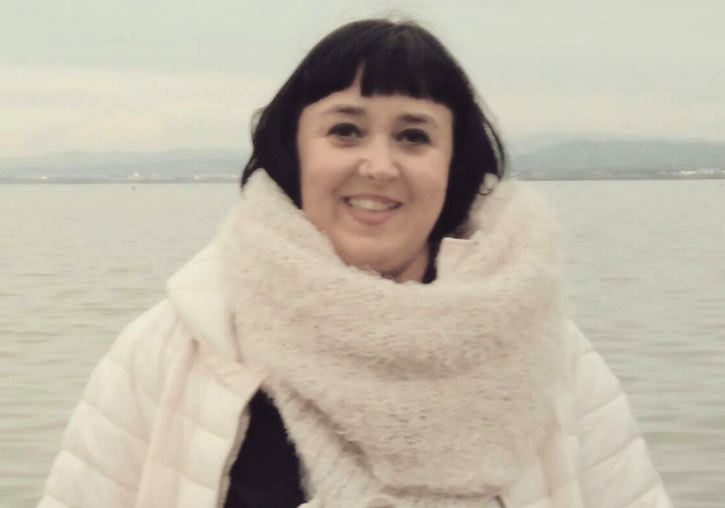
Nina Navajas Pertegás, assistant professor and researcher at the UV Department of Social Work and Social Services, has carried out a study on the consequences of fatphobia and the cultural imposition of thinness through her own experience, with a body itinerary that ranges from her childhood to adulthood. This scientific methodology, called autoethnography, has served the researcher to conclude that the stigma of fat generates a substantial renunciation of physical and psychological well-being to favour the normative body ideal, in which those people whose body is not normative are marginalised.
This work, published by the social research journal Athenea Digital, explains how the obesity epidemic – declared by the World Health Organisation (WHO) in 2020 due to the global increase in overweight and obesity – favours that being thin is considered a self-evidence the individual’s health status. In this sense, there are several social studies that have denounced that this epidemic has been constructed in an alarmist way, since there is little research that supports that fat is harmful to health and its methodology is questionable.
The author argues that, despite the fact that the so-called war against obesity operates in the name of health, it actually causes the opposite: physical and psychological well-being is renounced to achieve idealised thinness. Furthermore, autoethnography indicates that this is not only rooted in the population, but also in government and health institutions, which, according to some authors, constructs fat people “as a medical, social and socioeconomic problem”. And not only that: the research shows that both men and women suffer the consequences of this imposition. However, it affects women more and encourages their qualities to be compromised by their body weight.
“There are many interests in researching and financing studies that show the opposite of what I explain in my article, even in international organisations such as the WHO. It is not about conspiracy theories, but about seeing what interests there are so that one message or another is spread”, reflects NavajasPertegás. Along these lines, the author explains that it is very difficult to combat the established discourse because, although there is empirical evidence that being fat or fat does not imply not being healthy, “there are many people who have a preconceived idea and you run into a wall”. Moreover, the author comments that for her the important thing is not the debate on whether you can be fat and healthy, but whether it is ethical to discriminate against people based on their body size, sexual identity, ethnicity, etc.
In addition to denouncing the consequences of the imposition of thinness, the article aims to highlight that autoethnography is as valid as any other scientific methodological technique, since it allows affected people to speak and become “not only objects of investigation, but also in subjects that produce knowledge”. In the particular case of the researcher, she explains how all her life processes since childhood have been marked by an obsession with calories, kilos and the opinions of her environment.
“You should lose weight, I’m telling you this because I love you”– that’s how the autoethnography has titled it – was one of the many phrases that the researcher had to listen to until she decided, as an adult, to abandon the dictatorship of diets. As she herself says, it was as a result of studying the Master of Gender and Equality Policies of the UV that she began to investigate the stigma of fat. That is why she is now dedicated to the study of discourses on health and fat or the sociology of the body with a gender perspective. Her intention with this work is clear: “to contribute to making other lives possible and to naturalise the idea that you can live being fat, because our lives are also interwoven with affection, enjoyment, beauty and happiness”.
Article: Navajas-Pertegás, Nina (2021). «Deberías adelgazar, te lo digoporque te quiero: reflexiones autoetnográficas sobre la gordura». Athenea Digital, 21(1), e2434. https://doi.org/10.5565/rev/athenea.2434










